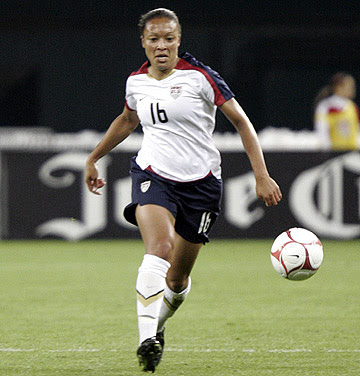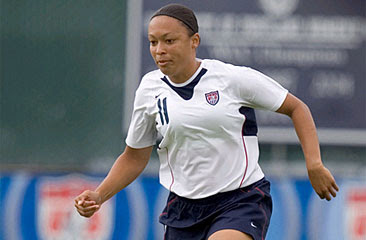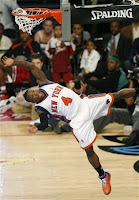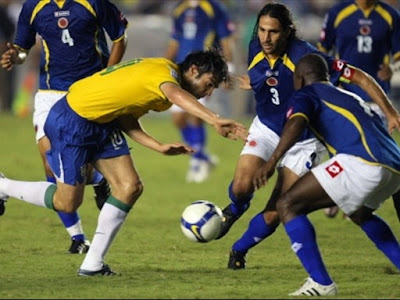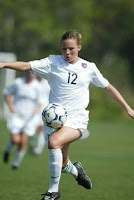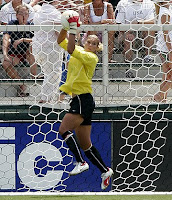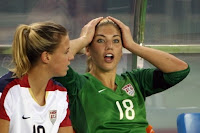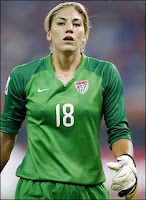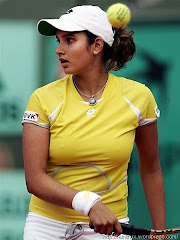No team in the history of football have enjoyed as much success as Brazil. When it comes to the FIFA World Cup, not only have the South American giants won more titles and more games than anyone else, and scored more goals, they have been ever-present at the finals, never once failing to negotiate their region's qualifying tournament. However, the reigning South American champions and FIFA Confederations Cup holders failed in their bid to reach a fourth successive FIFA World Cup Final at Germany 2006. That tournament marked the end of a golden era in the country's history and ushered in what what fans hope would be an equally successful spell under former Auriverde star Dunga.
With Brazil's phenomenal recent record at the finals, it is easy to forget that it was not always that way. Back in 1950, they hosted the FIFA World Cup supremely confident of celebrating the title at the awe-inspiring Maracana Stadium but failed to count on Obdulio Varela's indomitable Uruguay side snatching victory in the decisive game. There was a happier ending in Sweden eight years later, when a 17-year-old Pele guided Brazil to their first triumph. His magical skills, along with those of Garrincha and other fabled names, ensured the country's continued domination over the next few years as further titles were added at Chile 1962 and, perhaps most spectacularly of all, at Mexico 1970.
Pele's retirement marked a downturn in Brazilian fortunes, however, and it was some 24 years and several false dawns later before the Canarinhos reached the pinnacle of world football once more. At USA 1994, Carlos Parreira was at the helm of a side famed more for its tactical nous than technical prowess. Nevertheless, with the magic of Romario and Bebeto and the leadership of Dunga, Parreira duly guided Brazil to victory over Italy on penalties after the first goalless Final in the competition's history. In 1998, with Ronaldo having assumed Romario's mantle, the team coached by the legendary Mario Zagallo fell to France in the Final, opening a wound that would take four years to heal. Although Luiz Felipe Scolari's unheralded team arrived at Korea/Japan 2002 without the tag of favourites, they proceeded to sweep aside all-comers with some dazzling football from the three Rs - Rivaldo, Ronaldo and Ronaldinho - to claim a fifth FIFA World Cup.
In 2006, with Parreira back at the helm once more, the Seleção boasted perhaps the most glittering line-up in their history, with Kaka, Ze Roberto, Ronaldinho, Adriano and Ronaldo set to threaten even the tightest defences. They did wreak a certain amout of havoc in Germany, but not for quarter-final opponents France, who sent the Auriverde packing with a 1-0 win. Though no consolation for their elimination, Ronaldo's feat of becoming the competition's all-time top-scorer during the finals was a source of pride to all Brazilians.
In the aftermath of Germany 2006, the Brazilian Football Condeferation entrusted the running of the team to the hugely sucessful ex-international Carlos Dunga, who had captained Brazil to the world title in 1994 but who, curiously, had never worked as a coach before. Dunga wasted little time in repaying his employers' faith, leading the side to a 3-0 win over rivals Argentina in the final of the Copa America Venezuela 2007, having blooded a host of new players and coped without several big-name stars. All told, it bodes extremely well for the five-time world champions as they bid to repeat their first-place finish that took them comfortably through the qualifiers for Germany 2006.
Source US defender Rachel Buehler
US defender Rachel Buehler Rachel Buehler #4 of United States goes through the challenge from Daniela #7 of Brazil during the Women's Football Gold Medal match between Brazil and the United States
Rachel Buehler #4 of United States goes through the challenge from Daniela #7 of Brazil during the Women's Football Gold Medal match between Brazil and the United States U.S defender Rachel Buehler (L) fights for the ball with Canada's midfielder Alexandra Marton
U.S defender Rachel Buehler (L) fights for the ball with Canada's midfielder Alexandra Marton Phoenix Suns star and part-owner of WPS Steve Nash talks with U.S. Women's National Team players Leslie Osborne (C) and Rachel Buehler (R)
Phoenix Suns star and part-owner of WPS Steve Nash talks with U.S. Women's National Team players Leslie Osborne (C) and Rachel Buehler (R)








